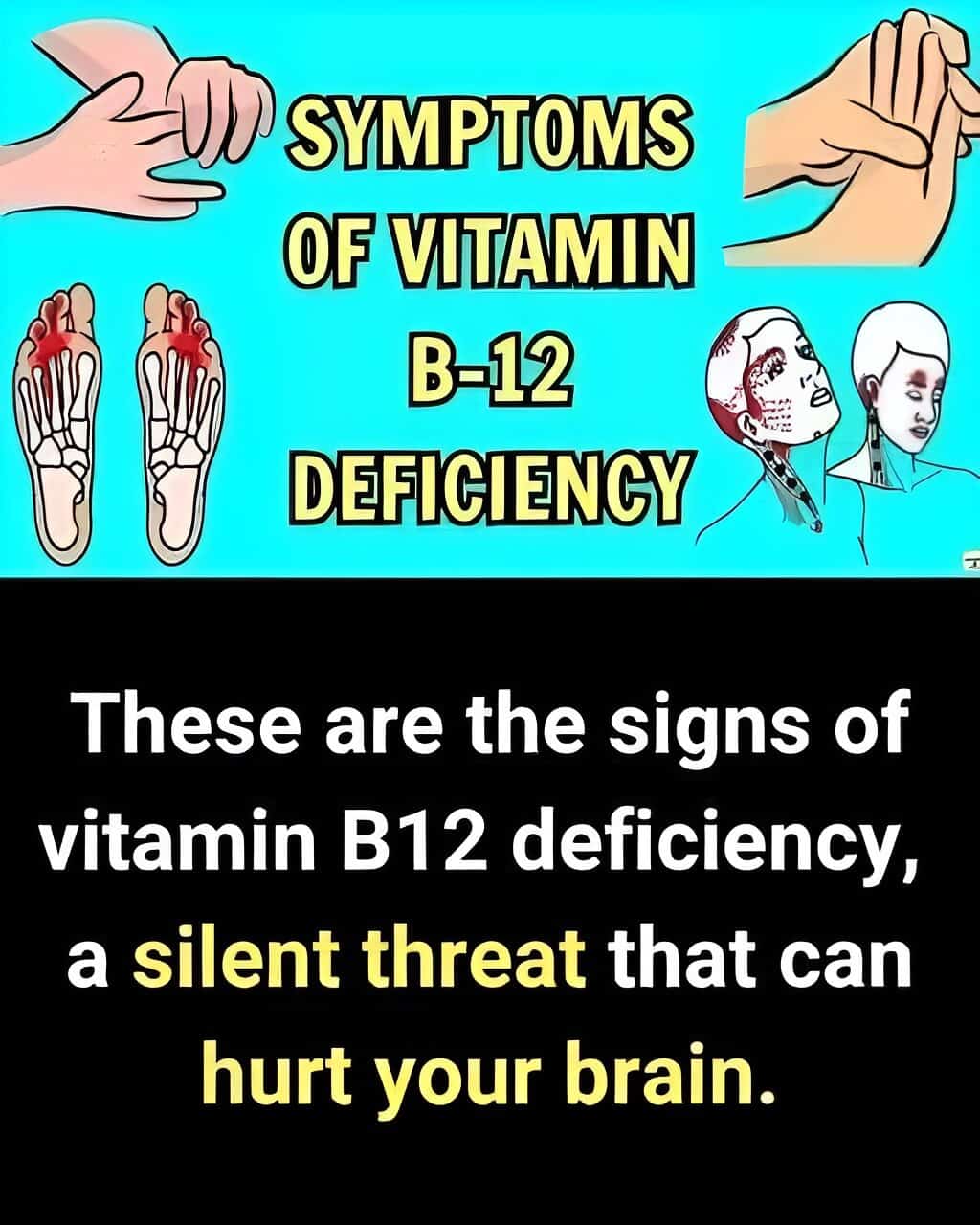Why Vitamin B12 Is More Important Than You Realize
Vitamin B12, also known as cobalamin, plays a critical role in red blood cell production, neurological health, and DNA synthesis. A deficiency in this essential nutrient can trigger a cascade of health problems—from fatigue and anemia to irreversible nerve damage and cognitive decline.
Recognizing the Symptoms of B12 Deficiency
B12 deficiency often develops gradually, and many of its early signs can be mistaken for other conditions. Among the first noticeable symptoms is persistent fatigue, even after a full night’s rest. Frequent headaches, poor concentration, digestive discomfort, and a tingling or numb sensation in the hands and feet are also common indicators, usually tied to declining nerve function.
1. Constant Fatigue
Feeling tired all the time despite getting enough sleep can be a red flag. B12 is vital for energy production, and a lack of it leaves your body struggling to perform efficiently.
2. Weakness or Dizziness
Low B12 levels can impair oxygen transport in the blood, leading to muscle weakness and bouts of dizziness, especially when standing up quickly.
3. Tingling or Numbness
One of the more alarming symptoms is a pins-and-needles sensation in the hands or feet, often signaling nerve damage due to prolonged deficiency.
4. Memory Issues and Brain Fog
B12 is essential for brain health. Deficiency may cause cognitive problems, including forgetfulness and difficulty focusing.
5. Pale or Jaundiced Skin
Low B12 interferes with red blood cell production, which can result in a pale appearance or even yellowing of the skin due to a condition called megaloblastic anemia.
6. Mood Changes or Depression
B12 plays a role in synthesizing brain chemicals like serotonin. Low levels can contribute to mood disorders such as anxiety and depression.
7. Blurred or Distorted Vision
Vision problems can occur if the deficiency affects the optic nerve, causing blurred or disturbed vision over time.
8. Glossitis and Mouth Ulcers
A swollen, inflamed tongue (glossitis) and recurring mouth ulcers can be linked to insufficient B12.
9. Digestive Issues
Nausea, diarrhea, constipation, or bloating may also be tied to a vitamin B12 shortfall, particularly when coupled with other symptoms.
Who’s Most at Risk for Vitamin B12 Deficiency?
People who follow vegan or vegetarian diets are more likely to develop a deficiency, as vitamin B12 is naturally found in animal-based products like meat, eggs, and dairy. However, even those who consume these foods may still face issues due to poor absorption.
Certain health conditions—including pernicious anemia, Crohn’s disease, celiac disease, and chronic gastritis—can interfere with B12 absorption. So can medications like metformin (used for diabetes) and antacids, which affect stomach acid levels.
Why Older Adults Should Pay Extra Attention
As people age, the body produces less stomach acid, which is necessary to release vitamin B12 from food sources. Adults over 60 are particularly vulnerable to developing deficiencies without even realizing it.
Why Early Detection Is Crucial
If left untreated, vitamin B12 deficiency can lead to irreversible neurological damage, including memory loss, balance issues, and even nerve deterioration. That’s why timely diagnosis and proper treatment—through dietary changes, oral supplements, fortified foods, or B12 injections—is essential for long-term health.
Final Thoughts
If you experience any of the symptoms above or fall into a high-risk group, it’s wise to speak with your healthcare provider about testing your B12 levels. Catching a deficiency early is a simple step that can prevent serious complications and significantly improve your quality of life.
